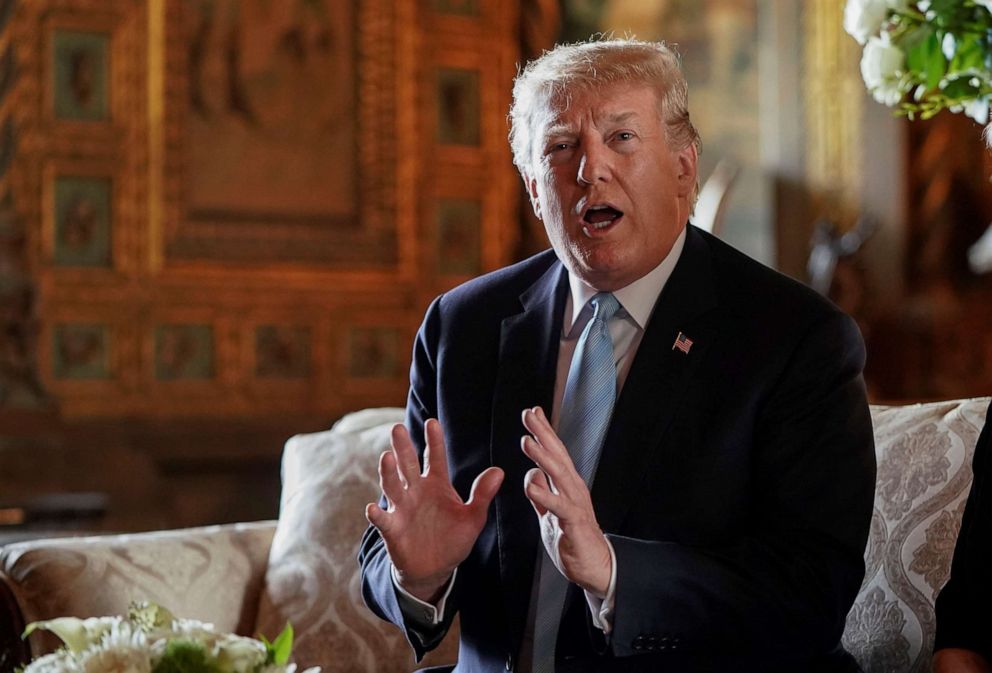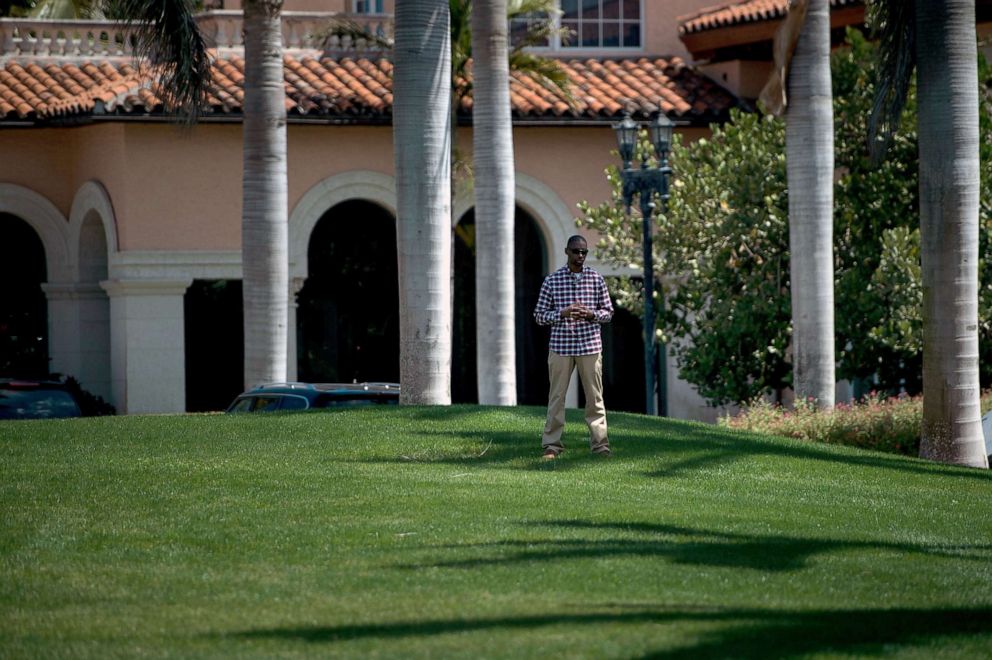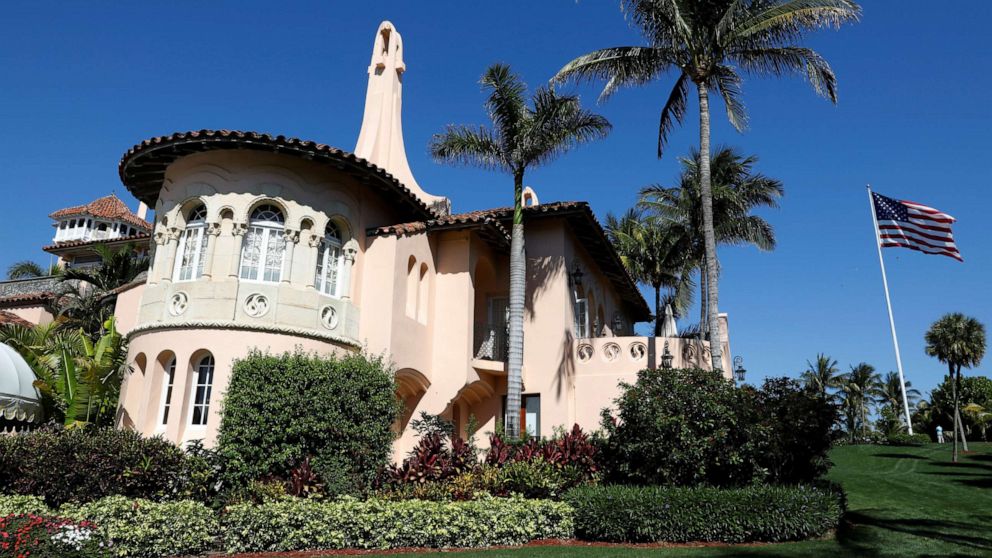Court hearing sheds new light on alleged Mar-a-Lago intruder Yujing Zhang
Yujing Zhang, the Chinese woman who allegedly talked her way into Mar-a-Lago over the weekend sparking concerns over security measures at the president’s country club, appears to be a well-to-do consultant for a Chinese investment firm, according to details in a court transcript.
Zhang, who was born in 1986, told a Florida court Monday she works for a Chinese company called Shanghai Zhirong Assets Managements Corporation, owns a home in China worth approximately $1.3 million and drives a BMW.
She said she had only been in the U.S. a short time at the time of her arrest, and that she had come to the country looking for a “business partner.” During Monday’s hearing, a transcript of which was provided to ABC News Thursday, Zhang initially spoke some English but reverted to speaking Mandarin through a translator.

A federal judge teased out these details when he questioned Zhang about her financial situation before assigning her a public defender. Despite her apparent wealth in China, Zhang said she had less than $5,000 in a U.S. bank account. Prosecutors asked the judge to detain Zhang ahead of her next hearing, citing an “extreme risk of flight.”
Zhang was not asked questions about the incident itself. CNN first reported details of the hearing. ABC News was not able to locate details about the firm during an initial search on a Chinese regulatory database.
The Chinese government said Thursday that it had been notified of Zhang’s arrest and is providing consular assistance to her.
Meanwhile, Zhang remains in federal custody ahead of her detention hearing, which is scheduled for Monday.
The Mar-a-Lago Incident
According to a criminal complaint filed against Zhang, at around noon on Saturday, she appeared at a Secret Service checkpoint outside the president’s country club and presented two Chinese passports. There was some confusion over whether she was a relative of a club member, and Mar-a-Lago staff cleared her through the checkpoint, the complaint says.
She went through a second Secret Service checkpoint, this one where she was screened by a magnetometer for weapons or explosives, before making her way to the club’s reception area. Only there did a receptionist discover Zhang was not on the club’s access list and called the Secret Service back.

When questioned by the Secret Service, Zhang said she had been told to attend a United Nations Chinese American Association event – also referred to as a “United Nations Friendship Event” -- that night at Mar-a-Lago by a Chinese friend named “Charles.” President Trump was in Florida at the time, but was off-site at a nearby golf course during the incident.
A Charles Lee was listed as an officer on a now-defunct website for a group called the “United Nations Chinese Friendship Association.” The website, an archived version of which was reviewed by ABC News, appears to boast access to, and displays Lee’s photographs with international figures, including one that appears to be of him standing next to President Donald Trump.
A photo on the archived website also appears to show Lee at an event with the president’s sister Elizabeth Trump Grau. ABC News could not immediately verify the authenticity of the photos.
According to the Miami Herald, Lee was also photographed at a Mar-a-Lago event with Cindy Yang.
Yang fell under the national spotlight following reports that she appeared to advertise access to Trump and his inner circle through a consulting firm she founded. Yang also had owned a string of spas in the area and years earlier had sold the one where New England Patriots’ owner Robert Kraft allegedly solicited prostitution earlier this year.
The revelations about Yang and her consulting firm prompted congressional Democrats to call on the FBI to investigate her as a potential counter-intelligence concern.
In an interview with ABC News, Yang said she was hardly a national security threat, denied selling access to Trump and said she had been targeted only because she was a Chinese immigrant, a Republican and a supporter of the president.
Yang had promoted an event at Mar-a-Lago on March 30, the day Zhang was arrested, but it was canceled in the wake of the media controversy surrounding Yang, the Herald reported. The name of that event did not match the names given by Zhang, according to the criminal complaint.
Through an attorney, Yang said in a statement Wednesday that she does not know Zhang and has “no relationship” with Lee, other than both having been guests at a prior event.
ABC News has been unable to reach Lee for comment. Kraft has pleaded not guilty to misdemeanors.
Trump ‘Not Concerned at All’
On Wednesday President Trump told reporters he was “not concerned at all” about the security breach over the weekend, calling it a “fluke situation.”
Democrats, however, raised the alarm about security protocols there and called for the FBI to assess the situation.
Thursday the Secret Service provided a briefing to the top Democrat and Republican lawmakers of the House Oversight Committee as well as the leaders of the National Security Subcommittee.
Oversight Committee Chair Elijah Cummings, D-Maryland, told reporters afterward he was “confident” in the president’s security.
“I am satisfied that the Secret Service has done a pretty good job,” Cummings said.
The Government Accountability Office, a nonpartisan congressional watchdog agency, investigated security protocol at Mar-a-Lago and found in February that the Secret Service had put in place adequate measures to protect the president at his Palm Beach resort.
Still, Cummings said the Secret Service plans to “evaluate everything” in the wake of the Zhang incident.
Since Zhang’s arrest, one focus of speculation has been on the detail in the complaint about the electronics Zhang purportedly had on her, including four cell phones, a laptop and, especially, a thumb drive that the Secret Service said a preliminary analysis showed contained malware.
A former U.S. official familiar with White House cybersecurity concerns told ABC News Wednesday it’s difficult to tell what sort of a threat the malware posed without knowing exactly what it was – whether it was run-of-the-mill malicious code that is not uncommonly found on thumb drives, or something more sophisticated meant to eventually make its way to sensitive official networks.
James Mulvenon, a Chinese espionage expert, called the incident “troubling,” but said he was doubtful it was part of a greater plot, citing what would have been “terrible tradecraft” for an actual intelligence operation.
Zhang has not been accused of any espionage-related crimes. She faces charges for purportedly lying to federal agents – she had initially said she was there to visit the pool before allegedly changing her story – and for entering a restricted area.
A public defender for Zhang has not responded to ABC News’ requests for comment.
ABC News’ Katherine Faulders contributed to this report.




